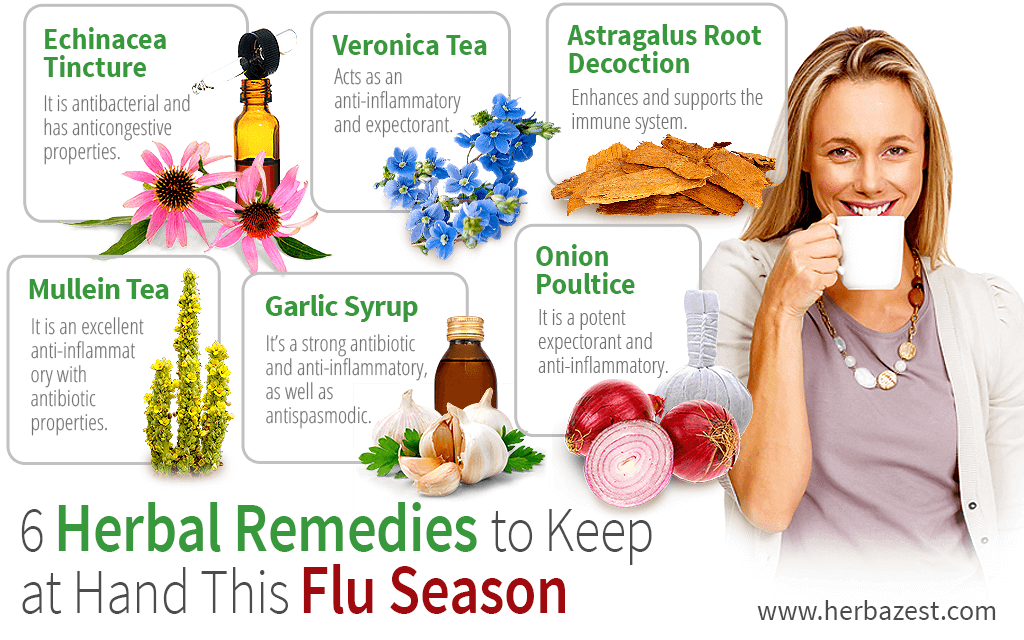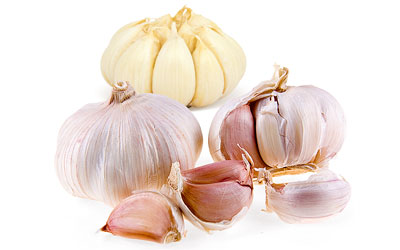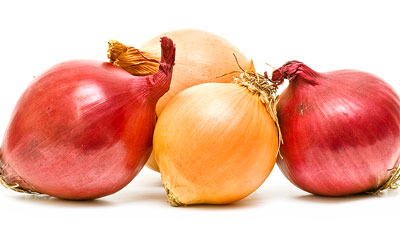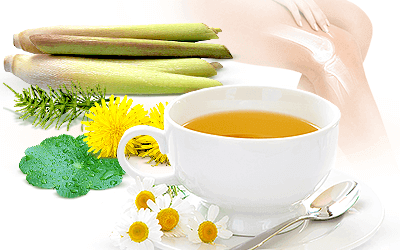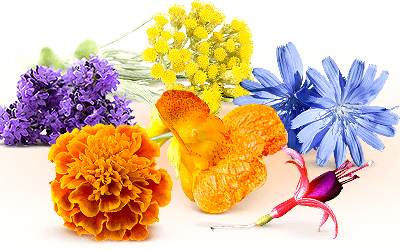Influenza, better known as flu, is a common infectious virus that's spread via coughs and sneezes. The usual symptoms include high body temperature, sore throat, congestion, headache, general aches and pains, and coughing; in extreme cases, these can render the sufferer bed-bound for several days. Although flu can be caught at any time during the year, it is most common in the winter months. Read on to discover how herbal remedies can help fight the symptoms of flu to get you out of bed and back to full health quickly.
Immunization prevents influenza infections in 70 - 90% of all healthy people under the age of 65.1
1. Echinacea Tincture (Echinacea purpurea)
Echinacea, originating from North America, is a plant of the daisy family. The leaves, flower, and root of echinacea have antibacterial and anticongestive properties. In particular, the roots are the most potent section, but their natural sturdiness requires the active ingredients to be extracted through something more complicated than a simple tea.
Fortunately, if an echinacea tincture for immunity enhancement is prepared as soon as the weather starts to cool down, then the whole family will enjoy extra protection against upper-respiratory tract infections, or cold-like symptoms such as a runny nose and stuffiness.
2. Veronica Tea (Veronica officinalis)
Veronica is a flowering weed that is similar to watercress in flavor. It is anti-inflammatory and an expectorant, meaning it can clear the congestion in the upper respiratory tract and reduce coughing. Try veronica tea or supplementary capsules to relieve the symptoms of flu.
3. Astragalus Root Decoction (Astragalus membranaceous)
Astragalus is a plant native to China, where its medicinal properties has been reaped by millennia; the astragalus root has historically been used to support and enhance the immune system. The root of the herb can be consumed in a soup, or in capsule form to prevent and minimize flu symptoms, such as congestion and a runny nose. Alternatively, astragalus can also be boiled for an hour or two in order to make a stronger decoction.
This Asian root can be combined with other herbs in order to enhance its beneficial effects. An astragalus and echinacea tisane for flu prevention potentiate the medicinal properties of both plants, in order to strengthen the immunity system.
4. Mullein Tea (Verbascum thapsus)
Mullein is a weed native to Europe and Asia with anti-inflammatory, antispasmodic, and antibacterial properties. Its leaves can be brewed into a tea to relieve throat pain, headaches, and coughing associated with the flu, although in some regions it is also found in supplement forms.
5. Garlic Syrup (Allium sativum)
Garlic has been prized for centuries for its numerous medicinal properties. It is antibacterial, antiviral, anti-inflammatory, anti-congesting, and antispasmodic. As such, consuming significant amounts of garlic by itself can provide moderate help against the majority of flu symptoms, including muscle aches, headaches, and congestion. However, if coughing is severe and especially if it's hindering necessary activities such as eating or drinking, or even causing a gag reflex, the a more potent form of garlic consumption may be needed: a garlic syrup as a cough remedy is an effective way to ingest its active ingredients with a pleasant flavor.
6. Onion Poultice (Allium cepa)
A close cousin of garlic, onion offers many of the same benefits, as an antiviral, antibacterial, and anti-inflammatory herb. However, it also has a significant expectorant action, which can clear the respiratory tract and further help relieve coughing. A poultice made of sauteéd onions, mixed with some corn meal, can be wrapped in a cloth and placed in the chest to stimulate the expulsion of phlegm.
Unless debilitating symptoms last for longer than one week, or you are pregnant, over the age of 65, or suffer from long-term conditions, such as diabetes, heart disease, or lung disease, there is usually no need to see a doctor for flu symptoms - in fact, studied point out that crowded waiting rooms are one of the primary places to spread seasonal viruses. Rest up, keep warm, and enjoy these herbal remedies with plenty of fluids to prevent dehydration, and within a few days, you should feel able to go about your routine as normal.
Sources
- National Center for Complementary and Alternative Medicine, Astragalus
- National Health Service, Seasonal flu
- National Institutes of Health, Echinacea | Garlic
- North Carolina Museum of History, Medicinal Herbs
- Journal of Ethnopharmacology, Biological activity of common mullein, a medicinal plant, 2002
Footnotes:
- Clinical Interventions in Aging. (2012). Effectiveness of influenza vaccine in aging and older adults: comprehensive analysis of the evidence. Retrieved July 16, 2021, from https://www.ncbi.nlm.nih.gov/pmc/articles/PMC3292388/


